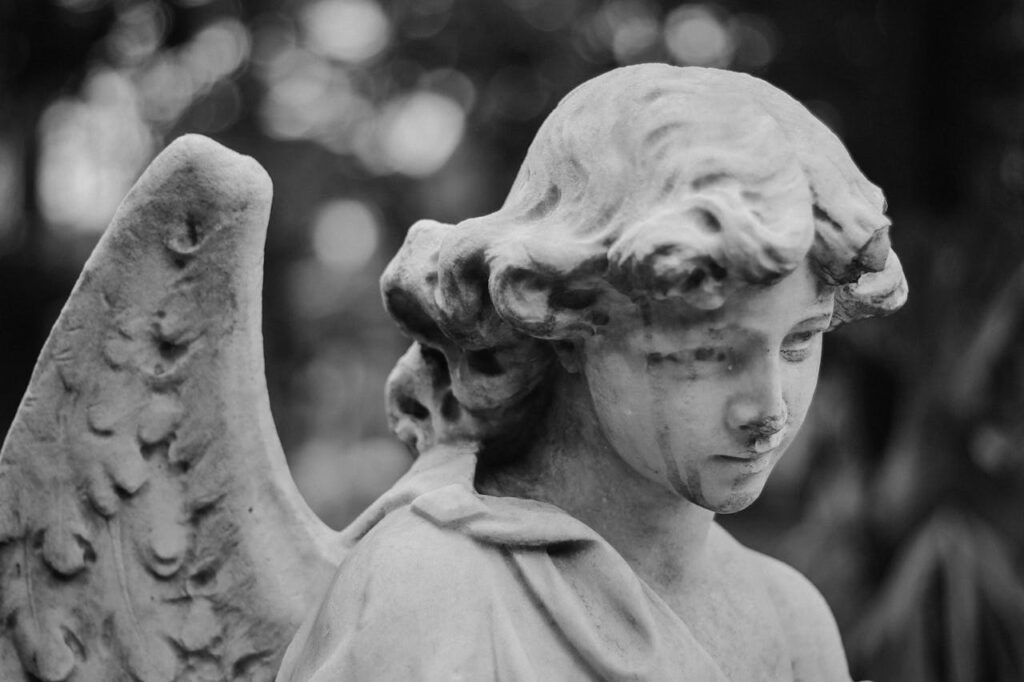One of the sadder facets of building a personal library is pausing every few years to realize how many of your favorite authors are now dead. I recall the first cold splash when glancing through my shelf and seeing Colson. Geisler. Nash. Absent from us, present with Jesus. Made me sad…but grateful.
In the years since, I realized something sadder. It seemed every time a famous Christian died, it became a new digital Gettysburg: Christians clamoring to the fresh front of the social media civil war. If funerals are notoriously awkward for not knowing what to say, Facebook fixes that. Social media becomes something of a lip-loosening liquor that turns some into sentimental drunks, gushing adoration for the deceased—while others get mean, rattling off reasons the world is better off now.
Meanwhile, recent years mean losing another wave of evangelical leaders. Voddie Baucham, James Dobson, John MacArthur, Tim Keller, Tony Campolo. And even typing that incomplete list, I anticipate combustible comments forming in readers’ minds. Campolo—really? Wasn’t he too liberal to be considered Christian? Or, You think MacArthur was a good Christian leader? I’ve got receipts. It’s grim how ungracious Christians can be toward each other after one of them dies.
And even when we’re not outright denouncing the deceased, we might feel the need to digitally distance ourselves from them when we can’t risk the impression of being aligned with their brand of Christianity. Because even if they’re technically a brother or sister in Christ, if we’re being honest, weren’t they just too (fill-in-the-blank)? Wasn’t Dobson too political? Wasn’t Baucham too divisive? Wasn’t MacArthur too chauvinistic? Wasn’t Keller too devoted to third-wayism?
“Even if they’re technically a brother or sister in Christ, if we’re being honest, weren’t they just too (fill-in-the-blank)?”
And all of this posthumous finger pointing is sad, not because it’s never true, but because every one of us is too something. Maybe you’re too offendable or too concerned about image or too easily discouraged. Me too. But when it comes to famous people, death hatches an opportunity for millions to descend and point out their many flaws. I know we’re trying to keep evangelicalism pure, but this impulse is turning many of us petty and puritanical.
I think the problem might come down to this: role confusion. When trying out for a musical, everybody wants the lead role, and only one gets it. When somebody famous dies, we tend to eye the role of final judge. We want to do the Caesar thumb thing. That’s not our role. The real Judge invites us to gather around caskets in order to help us excel in a more modest role:
“It is better to go to a house of mourning
Than to go to a house of feasting,
For death is the destiny of everyone;
The living should take this to heart.” (Ecclesiastes 7:2, NIV)
Each of these reminders of mortality ought to jog our memory. Oh yeah, I’m going to die too. And when that happens, what are we going to want and need more than anything else?
Mercy. As in, a lot of it.
“The real Judge invites us to gather around caskets in order to help us excel in a more modest role.”
Another’s death ought to sober, not loosen, us up. It’s an invitation for the high and mighty to get humble and merciful. After all:
- “Blessed are the merciful, for they will be shown mercy.” (Matthew 5:7, NIV)
- “Forgive us our debts, as we also have forgiven our debtors.” (Matthew 6:12, NIV)
- “If you do not forgive others their sins, your Father will not forgive your sins.” (Matthew 6:15, NIV)
- “This is how my heavenly Father will treat each of you unless you forgive your brother or sister from your heart.” (Matthew 18:35, NIV)
- “Judgment without mercy will be shown to anyone who has not been merciful.” (James 2:13, NIV)
I think both over-eulogizing and wrongs-cataloguing are symptoms. We’d rather play final judge than one of a trillion trembling souls kneeling before him in the end. But since casting decisions aren’t ours to make, we might as well get good at the role we’ve been given.
And given that role, what would it look like to practice the golden rule on dead Christians? For my part, it would be nice to know ways that I had helped people. I wouldn’t want flattery, painting me into a stained-glass window. But it would be nice to know I was helpful in somebody’s walk with the Lord.
“What would it look like to practice the golden rule on dead Christians?”
With golden rule in mind, let me walk through my bookshelves and offer a few simple thank you’s:
- Norm, thank you for making truth memorable.
- Lynn, thank you for teaching multiple generations to trust in Jesus.
- Voddie, thank you for speaking hard truth even when it went against the tide.
- John, thank you for giving us the best definition of “Bible” I’ve run across.
- Chuck, thank you for teaching Christianity as a way of life.
- Ronald, thank you for making philosophy relevant.
- James S, thank you for helping us understand our world.
- James D, thank you for teaching my parents how to parent us wisely.
- Dallas, thank you for showing us the genius of Jesus.
- Tim, thank you for modeling thoughtful devotion to Jesus.
- Fred, thank you for teaching us how to tell stories.
- Howard, thank you for training us to be creative teachers.
Did I agree with all these writers in everything they said or the ways they said it? Nope. But I’ve often had bigger issues with things I’ve said and the ways I’ve said them. Thank God for mercy. Whatever we let loose on each other, let it be that.











7 Responses
This is the way. Remember Paul in chains, writing to the little assembly in Philippi? He admitted that some preached Christ with mixed motives—even rivalry, even vendettas against him. And yet he says: “But what does it matter? The important thing is that in every way, whether from false motives or true, Christ is preached. And because of this I rejoice” (Phil. 1:18, NIV). Our social media compulsion to register our moral superiority or enlightenment by “nuancing” the dearly departed—spotlighting their “problematic” positions the moment they pass—is a kind of social neuroticism, and it runs utterly contrary to the gospel of grace.
Philippians 1:8 is the PERFECT bottom line here. Thanks, Jordan.
Daniel, glad I don’t have to wait until you’re gone to thank you for this. I’ve always known I owe a lot to those who came before me, but your piece reframes it in a way I really needed. It’s a needed and timely reminder, and you’ve said it with both clarity and grace. I’m deeply grateful for your voice—and for the many others whose books, sermons, and lives are the shoulders I’ve been standing on all along. None of them were flawless, but every one of them helped me see Jesus more clearly. Much appreciated.
Thanks so much, Jason.
“Social media becomes something of a lip-loosening liquor that turns some into sentimental drunks, gushing adoration for the deceased—while others get mean, rattling off reasons the world is better off now.” Thanks for the daily dose of humility! I may not post often or ever really, but I can’t claim pure thoughts. This was a sobering article and perfect for the time we are in. Jordan, great reply. I will be sharing!
“Create in me a clean heart, oh God; and RENEW a right spirit in me”
Wow, Daniel, thank you. I love the way you write; your articles are so on-point. This is a home run. This is the most profound, well-written, spot on thing I’ve read in a LONG time.
Thank you for speaking truth!!!
Thank you so much for the encouragement!